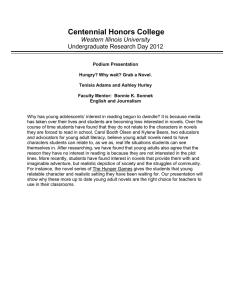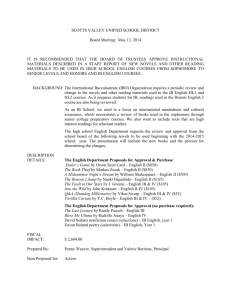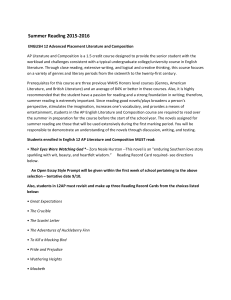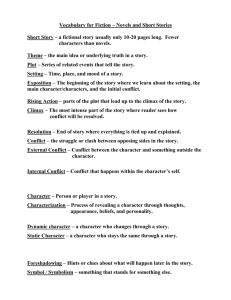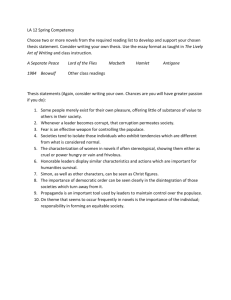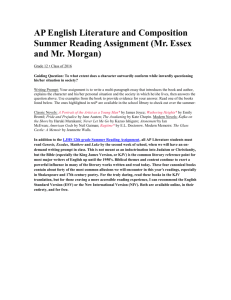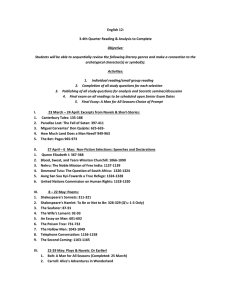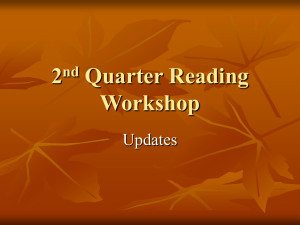PROSE 3 THE SYLLABY Chair: widyastuti purbani
advertisement
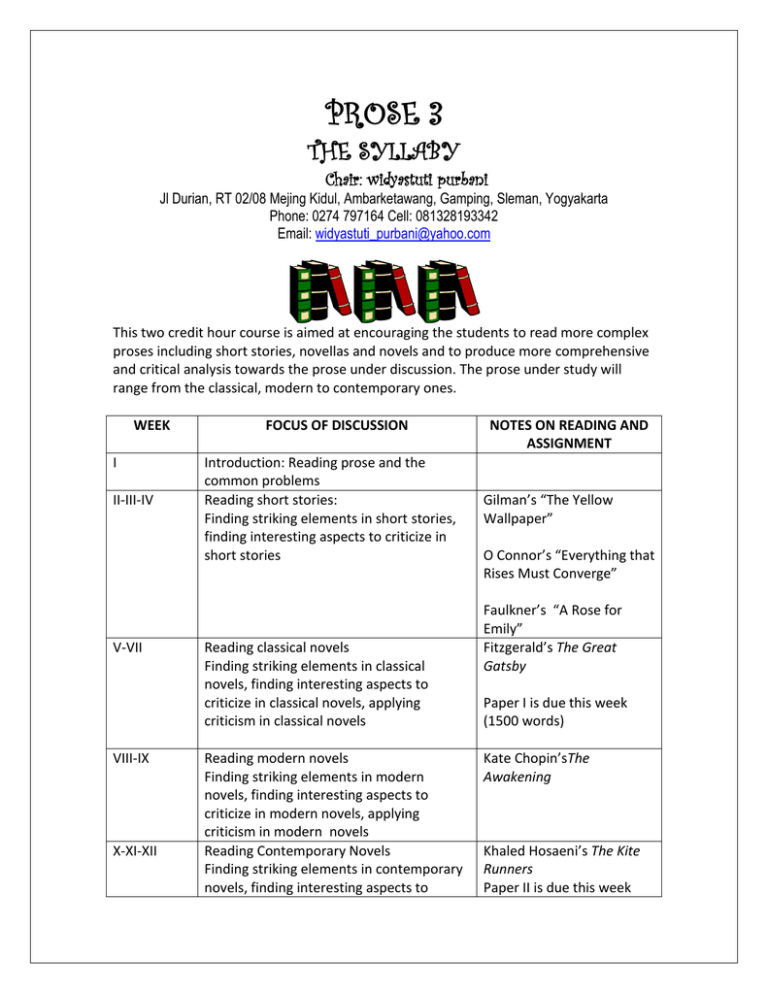
PROSE 3 THE SYLLABY Chair: widyastuti purbani Jl Durian, RT 02/08 Mejing Kidul, Ambarketawang, Gamping, Sleman, Yogyakarta Phone: 0274 797164 Cell: 081328193342 Email: widyastuti_purbani@yahoo.com This two credit hour course is aimed at encouraging the students to read more complex proses including short stories, novellas and novels and to produce more comprehensive and critical analysis towards the prose under discussion. The prose under study will range from the classical, modern to contemporary ones. WEEK I II-III-IV V-VII VIII-IX X-XI-XII FOCUS OF DISCUSSION Introduction: Reading prose and the common problems Reading short stories: Finding striking elements in short stories, finding interesting aspects to criticize in short stories Reading classical novels Finding striking elements in classical novels, finding interesting aspects to criticize in classical novels, applying criticism in classical novels Reading modern novels Finding striking elements in modern novels, finding interesting aspects to criticize in modern novels, applying criticism in modern novels Reading Contemporary Novels Finding striking elements in contemporary novels, finding interesting aspects to NOTES ON READING AND ASSIGNMENT Gilman’s “The Yellow Wallpaper” O Connor’s “Everything that Rises Must Converge” Faulkner’s “A Rose for Emily” Fitzgerald’s The Great Gatsby Paper I is due this week (1500 words) Kate Chopin’sThe Awakening Khaled Hosaeni’s The Kite Runners Paper II is due this week criticize in contemporary novels, applying criticism in contemporary novels XIII-XIV Presentation/performance (2000 words) Extra: Momaday’s House Made of Dawn Group/individual ASSESSMENT: You are expected to complete all readings as they are assigned. You have to attend all scheduled meetings and contribute to discussion as much as possible. Attendance is important. If you have more than 4 absences from class or do not submit essays on time you can expect your course grade lowered. Your final grade will be determined based on the following assessment: 1. Participation and involvement: 15 % 2. Essay I 15 % 3. Essay II 20 % 4. Oral presentation/performance 20% 5. Examination 30 % COURSE POLICY Plagiarism Policy: Academic dishonesty (plagiarism) is punishable by university and academic rules around the world. In simple terms you commit plagiarism if you fail to cite the sources of all the words and ideas you take from others, thus presenting them as if they were your own. If you commit plagiarism you will automatically fail from the course. For lack of attention a thousand forms of loveliness elude us every day. —Evelyn Underhill Most men have learned to read to serve a paltry convenience, as they have learned to cipher in order to keep accounts and not be cheated in trade; but of reading as a noble intellectual exercise they know little or nothing. Yet this only is reading, in a high sense, not that which lulls us as a luxury, but that we have to stand on tiptoe to read and devote our most alert and wakeful hours to. (Henry David Thoreau, 1964)
